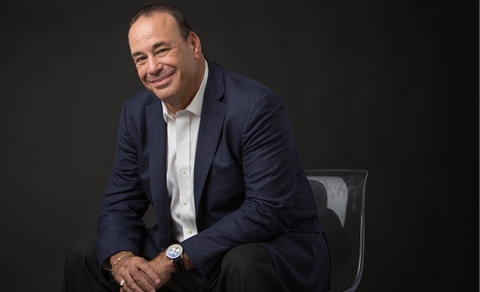Jon Taffer on How to “Rescue” Trade Shows

When Jon Taffer ran the Nightclub & Bar Show, his biggest fear was that an exhibiting company would skip a year. That exhibitor would then have the opportunity to see if it could succeed without that event. If so, they might never return. In 2020, “Everyone skipped the year,” said Taffer, who served as the event’s chairman in 2019.
In the downtime since the pandemic changed work patterns and put many trade shows and conferences on hold, the world learned to work differently. There might not be any coming back, either, if event organizers are not careful. “The technology industry is working hard to eliminate in-person meetings,” Taffer warned.
While Taffer’s red flag is perhaps a bit of an overstatement, Zoom, Microsoft Teams and dozens of other platforms have facilitated communication and business when individuals could not meet face-to-face. The pandemic certainly sped up the inevitable process of relying on digital interactions and experiences. Now, with a light at the end of the tunnel in sight, the stakes will never be higher for planners when articulating an event’s ROI. Companies and exhibitors are going to have deem traveling to a destination like Las Vegas, for example, is worth the financial costs and potential health risks.
As creator, producer and host of “Bar Rescue,” a popular show on the Paramount Network, the charismatic Taffer is used to overcoming obstacles to lead a business to success. The results are undeniable as the show ramps up filming again after the COVID-related hiatus.
Additionally, his blend of motivational pep talks and unusual personal story have made Taffer an in-demand speaker on the convention, conference, trade show and events circuit. He deserves much of the credit for the NFL Sunday Ticket, which revolutionized viewers’ game-day experience. Taffer is also using the knowledge from his years of consultancy with well-known hotels and brands to launch his own bars, Taffer’s Tavern (one opened in Alpharetta, Georgia, last fall), and mixology kits sold at national retail outfits.
How would this business mogul with decades of experience in the trade show world go about planning an event to make sure exhibitors don’t skip another year? Taffer shared with us a few key ingredients.
- Increase interactivity: “We're at a really significant change in our industry,” Taffer said. “There's no reason to go to a trade show for a two-dimensional experience. The only reason to go to a trade show is to touch and feel something, and actually smell it.” In other words, the days of rolling into town with just a banner and pamphlets are over, and planners need to push exhibitors to provide another layer of enticement.
- Add celebrity appeal. Taffer acknowledges this element is self-serving to some regard, but the point it is well taken. “People don't need to go to the trade show to hear the CEO of some company,” he said. Adding big-name speakers and participants—actors, TV personalities, politicians, etc.—creates FOMO that might be enough to tip the scales to attending in-person over virtually.
- Make it about the lifestyle. Networking and gathering information are available over a computer screen, but what if attending the event feels more like a party? He suggests emphasizing evening get-togethers at exclusive bars and other venues that take mixing and mingling to a whole other level.
- Think big cities. Related to the last item, Taffer says planners may need to rely on Tier 1 cities (New Orleans, New York, Boston, etc.,) with an abundance of extracurricular options. “I think destinations like Las Vegas will become more important, because the social aspects around the convention become more important for bringing spouses and other employees,” said Taffer, who lives in Las Vegas. Do your research, though. Taffer noted he had surprising difficulty finding a large off-site venue (fitting 300 or more) at a large and popular destination we shall not name here.
Don’t miss any event-related news: Sign up for our weekly e-newsletter HERE and engage with us on Twitter, Facebook, LinkedIn and Instagram!


Add new comment